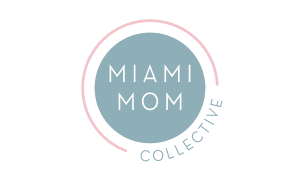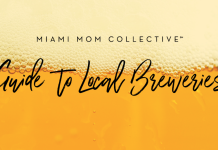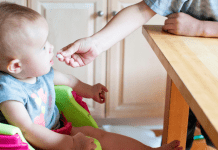Even as a dietitian and formerly exclusive pediatric dietitian, neither my baby nor I were chomping at the bit, literally, to start solid foods. He was solely breastfed, an incredibly voracious milk drinker who was showing no interest in “people food,” as my husband I called it. And I dreaded adding yet another slew of tasks to my day by preparing his food and cleaning up thereafter. All of my friends were cooing about starting solids and how much “fun” it was. I begged to differ. I was perfectly content nursing him four times a day and devoting any remaining nutrition bandwidth to myself.
Eventually, all roads lead to food.
Including my pediatrician gently chiding me to start solids at my baby’s six-month visit. Previous recommendations, and unfortunately, some pediatricians, still push starting solids at four months. (There IS an indication for this for certain high-risk children with food allergies — more on that in another post). While the infant gut is technically ready to handle solids at that age, ideally for various reasons, waiting until six months/when various other milestones have been reached is ideal.
My pediatrician encouraged me to start solids at my baby’s six-month check-up, and I wasn’t entirely comfortable with it. Looking back — neither was he. Also — I was still breastfeeding about four to five times per day, pumping because of my oversupply, pumping in the middle of the night as well, and then I was ALSO supposed to then begin preparing food, feeding it, cleaning it/the surrounding four walls of my house where the food would be flung as well? On top of my full-time job and some attempts to sleep? Sure.

Food before the age of one provides supplemental nutrition to the majority of the infant’s intake — breastmilk and or formula.
Most of the benefits of solids actually lie in developing oromotor, sensory, cognitive, and fine motor skills. Introducing the baby to the whole concept/atmosphere of solids is as, or more important, than the actual nutrients from the scant amount of food a six-month-old will eat. As time progresses, the ratio of solids to milk increases until age one when the infant is ready to possibly wean off of breastmilk/formula and transition to cow’s milk (if no cow’s milk allergy is present). Eating, for an infant, is about several things:
- Being with a caretaker
- The sounds of the food being scraped about,
- Watching the preparation of the food
- Touching the food
- Using utensils
- Using food as utensils (like a scooped cooked and peeled zucchini stuffed with cottage cheese)
- Learning how to use the utensils
- Noticing colors, shapes, textures, temperatures, seasonings, flavors, scents, their chair, their clothes, and the adult reactions to their intake
- The sensation of sitting
- Drinking water/milk from a cup (by the way — we no longer recommend sippy cups — we recommend tiny “adult” silicone cups and then straw cups around nine months!)
- Sorting out taste preferences
- …and observing animals enjoy the fallen bits (“La Senora Madeleine”, our geriatric Cavalier King Charles Spaniel, ate FAR more than my son the first few months of solid foods), etc.
For my baby, the sensory party with every “meal” was much more beneficial than the actual mere tablespoon of food that actually made its way into his mouth (much to the elation of the family dog coveting the morsels below.)
We recommend that babies meet three milestones before introducing solids:
- That they can sit independently, and well, for several minutes at a time. My baby wasn’t doing this at six months. But some do far earlier. This is great to minimize choking risk because if they aren’t focusing on staying upright, they’re less likely to choke.
- That they lose their tongue-thrust reflex.
- That they show an interest in the food that adults around them are eating.
Read Part 2 here!
In the meantime, check out this post from another local mom who overcame her solid feedings fears.
















